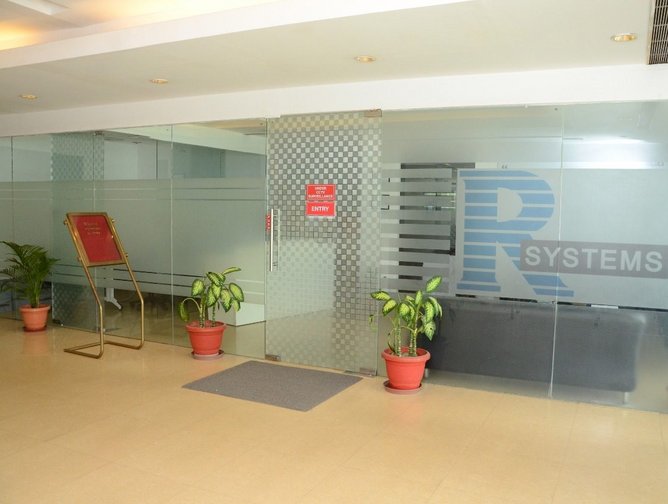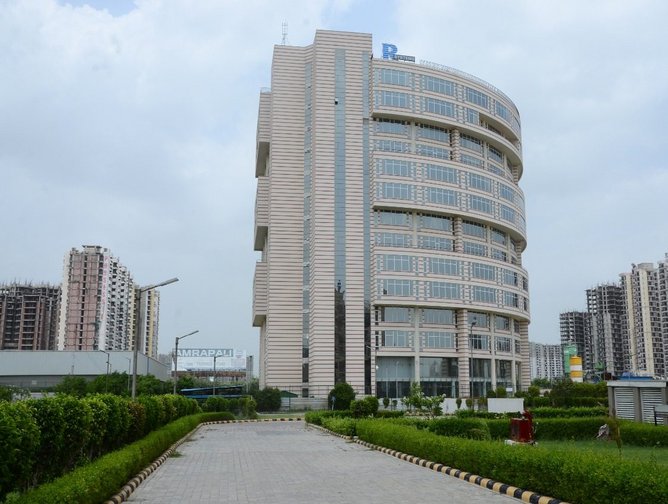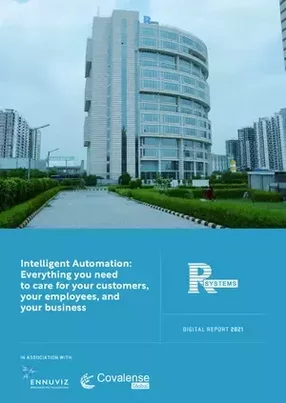Leveraging AI with R Systems’ automated business solutions
As a global digital and automation service provider, R Systems is committed to generating value for its clients through technological innovation and collaboration with leading platform providers. Bringing advisory services and offering implementation support to industries, the company prides itself on enabling client success with a prominent focus on strong planning and execution, utilising industry best practices, and leveraging accelerators.
Founded in 1993, R Systems manages operations spanning 25 different offices and 16 delivery centers across the globe. Since its establishment, the firm has witnessed some of the key stages in the lead up to digital transformation—from the introduction of Java, Facebook, and Google mail to the beginning of the digital transformation era. The latest business model sees the company leveraging the leading artificial intelligence (AI) and machine learning (ML) platforms from world-renowned leaders, such as Amazon Web Services (AWS), Microsoft Azure, and Google Cloud.
“We don’t develop a new product, we work with Google, AWS, Microsoft Azure, and many other AI/ML and robotic process automation (RPA) tools and platforms and develop custom-built solutions to solve for business opportunities and problems that our customers have,” says Hiren Kotak, Vice President and Global Head of Intelligent Automation Practice.
R Systems has benefitted significantly from Kotak’s position, which primarily involves the development of full-spectrum intelligent automation practice along with his efforts in planning the firm’s go-to-market strategy. Kotak also works with clients to establish their goals, develop automation strategies, and design suitable solutions that “leverage the best tools in the market” while tailoring those solutions to the individual needs of its clients. Another critical part of his role at the company is to ensure the successful delivery of its advisory engagements and implementation projects and manage the firm’s global network of delivery centres and talent within them.
“We figure out which tools would provide maximum ROI for the customer through the newly constructed digital workforce,” explains Kotak. “We configure and train those digital workers using the low-code, no-code tools that mimic human actions and enable them to execute processes much faster, and without any human errors.”
Industry applications of intelligent automation
While discussing the application of intelligent automation, Kotak’s passion for providing solutions and his industry experience shines through his explanation of the company’s customer-centric outlook. He also provides examples of how AI and machine learning have become more versatile in their applications, as he explains some of R Systems’ supporting roles in industry transitions to intelligent automation.
“We work in all industries but the majority of it is for the healthcare industry and financial services,” says Kotak. “In the healthcare industry, a simple thing like billing has become a very complex process—especially in the US. It was estimated that we spend almost 10% of the overall amount of healthcare dollars in the administrative processes, and the majority of that is associated with the billing process, and related insurance verification and claims.”
He also explains that many critical procedures—such as patient insurance eligibility checks, advanced authorization of treatments, identifying post-treatment billing codes, denial management, and claim settlements are currently fulfilled manually in many healthcare provider organisations.
“60 to 80% of that is done manually today with most healthcare providers. After the claim is submitted, it’s not a simple process to obtain the payment. There are often questions, denials and appeals. There are various things that a provider needs to do to receive the payment,” he explains. “All of this involves interdependent tasks that we have now successfully automated for our clients.”
Meanwhile, in the financial sector, the same business model applies. In any regulation intensive industry, like banking, there is a high number of menial tasks that consume a significant amount of time. Alleviating the manual input—or at least most of it—can provide significant efficiency gains and cost savings.
Kotak says that “in the traditional banking environment, the account opening processes, account servicing processes, and many of the front-end processes, as well as the back end or back-office processes, are manual because the way the banking services are grouped—for each different product like credit cards or checking accounts and savings accounts, or investment accounts or loan accounts—there are different systems, and different operational groups. To provide a seamless customer experience, you need to integrate all of them, which becomes a tremendously difficult task.”
The solution to optimising day-to-day tasks lies in the development of AI-powered digital workers—effectively virtual employees—that manage the repetitive tasks that would otherwise be carried out by personnel. The ability to pass on these tasks to an automated digital worker creates productivity and cost savings while freeing up members of staff for other critical business activities.
“With this new technology, we can provide them with solutions where there is less of the manual work, less of the repetitive, data entry type of work. It provides more accuracy and stronger regulatory compliance for our banking customers,” he says.
Strengthening the transition to autonomy
The adoption of technology for business practices is becoming commonplace across many industries, however, as expected with any technology innovation, many businesses remain uncertain about implementing new tools before witnessing the benefits. After all, manual processes have been utilised since the beginning of time, making it somewhat unnerving for leaders to entrust their business practices to a digital solution, in which they possess minimal knowledge and experience. R Systems supports its clients throughout the entire process – starting with education, and then identifying automation opportunities, developing strategy and roadmap, setting up governance and operating model, developing software robots, training the staff—followed by continuous analysis and improvement to further optimise the benefits of intelligent automation.
“Obviously with any new technology and any new tools that come into the market, initially there is a lot of scepticism and anxiety around data security and the risk associated with that. So, we spend a lot of time explaining to our clients, especially their info security, risk management and compliance departments, talking about what the technology does, how it works, how it processes data, where the data is stored, how audit logs are created—in the on-prem solution, as well as with the cloud solution,” Kotak adds.
R Systems’ customer-centric approach ensures client satisfaction and enables repeat business. “We not only provide advisory services or consulting services, but we are also implementation partners. To deliver what we promise, and we promise, what we can deliver”, says Kotak.
“Most of our clients are long-term clients and we have been very fortunate with the kind of quality and delivery that our team has been able to provide. We continue to expand our business with existing clients, not only for maintenance and support services, but we continuously work with various departments enterprise-wide to help them automate different parts of the business,” says Kotak.
Expanding upon great technological triumphs
R Systems does not attempt to ‘reinvent the wheel’. The company leverages the technology provided by the companies like AWS, Google, Salesforce, Dell, and Microsoft, as well as other industry-leading providers of process mining, conversational AI, and other low-code, no-code tools. Kotak expresses the benefits of its strong relationships with these tech giants, and how R Systems leverages its research and development capabilities to create a foundation for its offering.
“They bring tons of value. With their deep pockets and the access to the amount of information and data that they have, they’re able to do a lot of the R&D utilising great talents across many continents. In recent years, they have made tremendous progress in the fields of artificial intelligence, machine learning and deep learning algorithms, speech-to-text and text-to-speech, OCR and computer vision, natural language processing, as well as natural language understanding and generation. These tools and these foundational pieces that they are building are instrumental to our success.”
He specifically highlights some of the benefits of working with its key strategic partners, Ennuviz—another intelligence innovator that specialises in intelligent process automation—and Covalense—certified by some of the top development companies in the industry. One of the most important messages in this discussion is that there is no single company that can provide all business solutions, and collaborative efforts with companies like Covalense and Ennuviz open up doors to new digital transformation capabilities. In the digital world, it is very critical to have the right type of digital eco-system built around you, because you can’t do everything by yourself and you can’t be the best at doing everything by yourself,” says Kotak.
“So, in partnership with Ennuviz, we have been able to extend our services for process mining, task mining and automation opportunity discovery. They are experts in Celonis and Signavio and many other tools related to process mining, and we leverage their services often in the North American market,” Kotak explains.
The strategic partnership with Covalense has provided further technical support and has encouraged access to markets in the Asia Pacific region. “With Covelanse, again, we have leveraged their services in robotic process automation and Conversational AI, primarily in the Asian market. They have a strong presence in APAC—Australia, New Zealand, etc. So, as we expand our footprint in those areas, we are leveraging their capacity and partnering with them to meet the needs of local clients.”
The overarching aim of R Systems’ customer-centric strategy is to educate business clients on the benefits of digital transformation and encourage the adoption of automated systems. Promoting the importance of the value-based framework, the company can focus on automation-as-a-service and build long-term client relationships.
“We have a very robust value delivery framework that helps us identify the needs of our clients and understand their implicit and explicit needs. Through our knowledge of the clients’ industries, we help our clients stay more competitive in their respective industry by providing differentiated, value-added services to their end-users”, says Kotak.
Continued success in unprecedented circumstances
The onset of the coronavirus pandemic has further emphasized the case for digital transformation and automation. With continued demand for technology services, R Systems has sustained its growth throughout the pandemic and is targeting to maintain or even accelerate the growth post-COVID.
Kotak says, “We continue to grow pretty fast. During COVID we saw a lot of need for automation services, and we have benefitted from that continuous demand. For my practice specifically, we have achieved a lot this year for setting a stronger foundation for the practice. It included kicking off our automation delivery centres in Europe and Asia, establishing a stronger presence in North America, as well adding offerings like process mining, conversational AI and other cognitive automation capabilities.”
“We have seen almost eight times growth this year, compared to last year, and we are tracking exponential growth going forward,” says Kotak.



